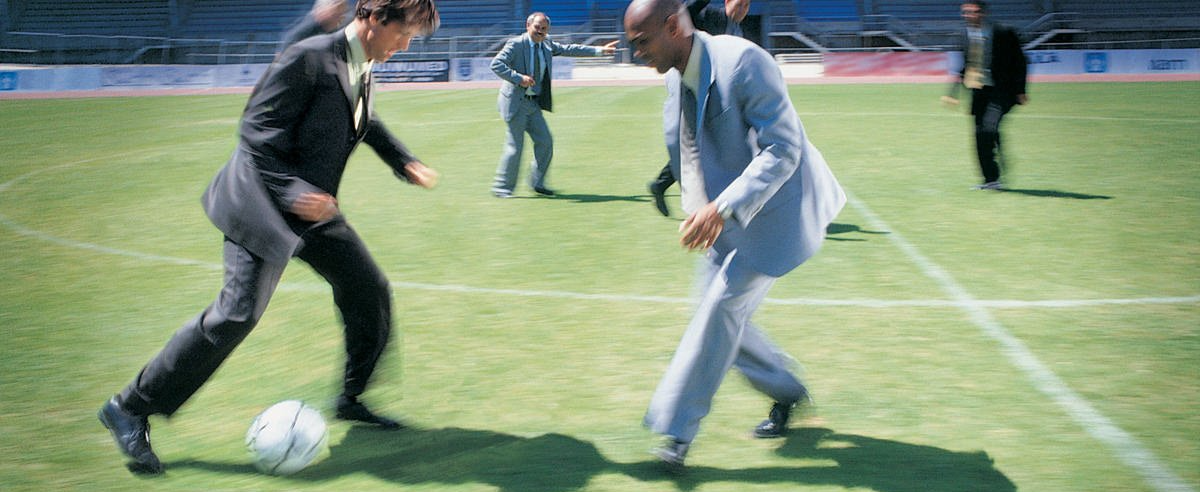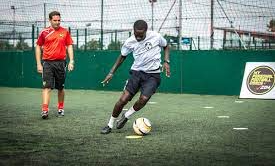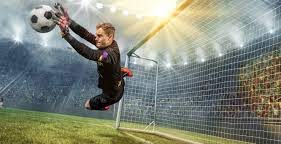Placeholder for Title
With 6’ 6” and clumsy long legs, I was never good at football (and some other sports….) nor very football-enthusiastic, though our Dutch national team did -sometimes- do fairly well.
As a General Manager I have been “on the road” in Africa for 20+ years and leadership philosophies have evolved in that time.
I did keep an eye on the news regarding football teams, such as Bayern Munich (at some time with fellow-countryman Van Gaal as coach and Arjen Robben scoring), but the stories around it were sometimes more interesting than the actual football. I noticed some interesting similarities with “football” and managing hotels or companies. They both face challenges operating and managing a team to achieve a certain outcome.
At the 2nd day of soft-opening a hotel in a large city in West-Africa, an owner without previous hotel-experience called the whole management team for an “Emergency Meeting“. His “Emergency”-issue was that he had a problem with the way the bedsheets were folded when making the beds. His most significant statement was however (he was, as many Africans, a big football-lover) “If the team doesn’t play well, you know what happens to the coach” whilst looking at me. I thought “but doesn’t have the coach have a clear influence on the team-strategy and choice of players……?” but kept silent.
I tried to figure out if the General Manager is really "just" the coach / manager of the team. He surely has to “coach” and develop his team through training and individual team members through coaching & mentoring.
I soon found that he has more roles to play:
- Team-captain; sometimes the most glamorous part when receiving the trophy, which he should – as a real team-player- hand over to the other players. But he also plays a role in binding the players together.
- Midfielder: continuously plays the ball forward to the players in the best position to score the goal.
- Striker: the one who, in most cases but not always, scores the goal.
- Defender: sees imminent upcoming dangers and tries to prevent worse.
- Goal-keeper: if “the sh** hits the fan” the GM will stand in and saves the situation by doing damage control and take the ultimate responsibility.
- Technical or sporting director of the team; as the General Manager should have ample knowledge of the technical aspects of the hotel in all its aspects and be able to support all players with advice. I do feel that a General Manager should not have a “know-it-all”-attitude however but know where to look for expertise or solutions if it is beyond him.
- Business Director of the club; he continuously keeps and eye on the financial bottom line and less on the football-side of the venture
- Team-doctor; the General Manager continuously monitors the mental and physical health of the players. Sometimes team-members get “hurt” and the GM /team-doctor has to “patch up” a team-member.
If “scoring goals” is the ultimate objective, it is a good thing to give ALL players a chance to score. At any time all team (staff) members should at least feel that they have considerably contributed to achieve it.
I deliberately left out the “politics”-aspect, as this is difficult to describe but it plays a role in both football and hospitality business. The “fans” (ownership-entourage and friends / advisors) also play in interesting role.
I always put the people, both guest and employees, as a pivoting point for all activities and strategies, which hasn’t really changed. Thankfully this is common knowledge these days, but it is not always implemented.
So what is the "position of the GM in a football team"?
The answer is: all of the above (and more.....)
At the end of the day I feel that “situational leadership” guided by a strong underlying strategy and integrity is the best way to describe the role of the General Manager.
The continuous change of role/position during the day is one of the things I love about this job and it never get’s boring.
One can lead from the front, the back and even from the side-lines.



